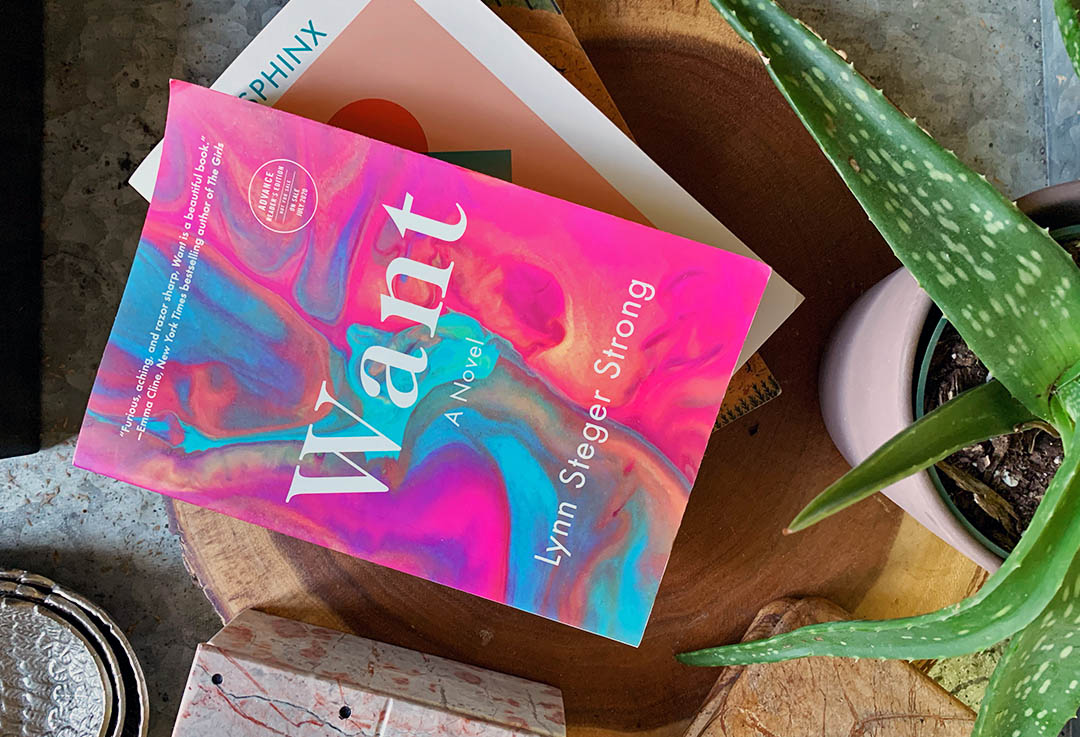
I thought I would share those that I’ve liked the most with y’all since I figure we all need some solitary activities to keep us occupied this summer.
YMLL QUARANTINE SUMMER READING LIST

SPHINX – ANNE GARRÉTA
Before reading this book, I never knew about the Oulipian writing style, which uses methods of restraint when creating. In this case, the restraint Garreta put on herself was to never mention gender in this novel. As complicated as I can imagine this would be to create, the book reads smoothly and allows the reader to imagine the characters without assigning them to any specific gender.
Sphinx follows the romantic relationship between the narrator and “A***.” It’s a violently passionate, constantly churning story of love. When reading it, I felt as if I was racing towards the inevitable fates of both characters, often unable to catch my breath. It was a thrill. Without giving away too much, I’ll say that the end of this book is a blow to the stomach in all the right aways.

WANT – LYNN STEGER STRONG
This novel, by my friend and former next-door neighbor, just came out this month. I was lucky enough to get an early copy, and all I can say is that this book is one you’ll get through in less than three days because you won’t want to put it down. I haven’t read something that settled into me so quickly and deeply in a while.
The plot follows narrator Elizabeth’s yearning to reunite with her old friend Sasha. The two have grown apart, and Elizabeth takes to late-night texting and Instagram stalking Sasha. But the book is about much more than the relationship between these two women. It’s about the complications of being a millennial who came from privilege, yet is downwardly mobile (as many of us millennials are). It’s about codependency and love. It’s about the relative and ever-shifting meaning of failure and success in our lives. It’s about dealing with all the mixed-up feelings of anger that we are silently told we’re not allowed to have as women. It’s about coping with depression. It’s about motherhood. It’s about wanting, but never getting so many things that we’ve been told we can have.

ALL ABOUT LOVE: NEW VISIONS – BELL HOOKS
In this deep dive into how our society has shirked love, feminist icon Bell Hooks, eloquently addresses the need for love and compassion in the way that we live our lives personally and collectively. It’s especially poignant in light of the current civil rights movement. Not only does she address the lack-of-love issue—she also offers insight into how we can implement a more loving way of life.
Some words from this book that have personally resonated with me recently: “To open our hearts more fully to love’s power and grace we must dare to acknowledge how little we know of love in both theory and practice. We yearn to end the lovelessness that is so pervasive in our society. . .There can be no love without justice. Abuse and neglect negate love. Care and affirmation, the opposite of abuse and humiliation, are the foundation of love. It is a testimony to the failure of loving practice that abuse is happening in the first place.”

LOLLY WILLOWES – SYLVIA TOWNSEND WARNER
Named after the main character, this novel follows the story of a woman who breaks free of societal chains and obligations placed on middle class women in early 1900s England. How? By fleeing her family and becoming a witch.
Written in the 1920s, this story was truly revolutionary at the time because it puts an aging middle class spinster in the protagonist role, rather than relegating her to the comical side character we often laugh at or feel pity for.
What’s so unique about the way this book is written, and what felt refreshing, is the tempered, monotonous way with which this felt like I was at first reading the literary version of Downton Abbey, but then suddenly goes off the rails into this wild, chaotic, emotional freedom. Also, the way this woman totally owns the devil in her debates with him is AH-mazing.

THE HUNDRED WELLS OF SALAGA – AYESHA HARRUNA ATTAH
In this book, author Ayesha Harruna Attah reimagines the story of her enslaved ancestors. It follows the convergence of two young African women coming of age in a West African village during a time period where slave trade had officially been outlawed, but was still happening within the area.
Aminah, a young woman whose family and town are destroyed by slave traders, is sold into slavery while Wurche, an ambitious chief’s daughter in a falling tribe (much to the fault of early colonialism) is frustrated by the patriarchal values of her community and family. The two characters meet when Aminah is bought by Wurche, in a story that shines light on the way that slavery and colonialism affected the personal lives of people.

THREE WOMEN – LISA TADDEO
To write this book, Lisa Taddeo followed the lives of three women for years, melding together journalism and storytelling to share the experiences these women had with love and heartbreak throughout their lives. It’s an expression of the needs and desires of these women, and how so often, the men in their lives did and did not provide that. There’s Lina, who is romantically neglected by her husband, so she starts having an affair via Facebook with a guy she knew from high school. There’s Maggie, who is a teenager who has had a romantic relationship with her English teacher, who she later takes to court. And there’s Sloane, a restaurant owner whose husband enjoys watching her have sex with other people. This one is definitely a page-turner.
Follow me on Instagram and subscribe to my free digital magazine.
For the multidimensional woman trying to live her best life.

LEAVE A COMMENT